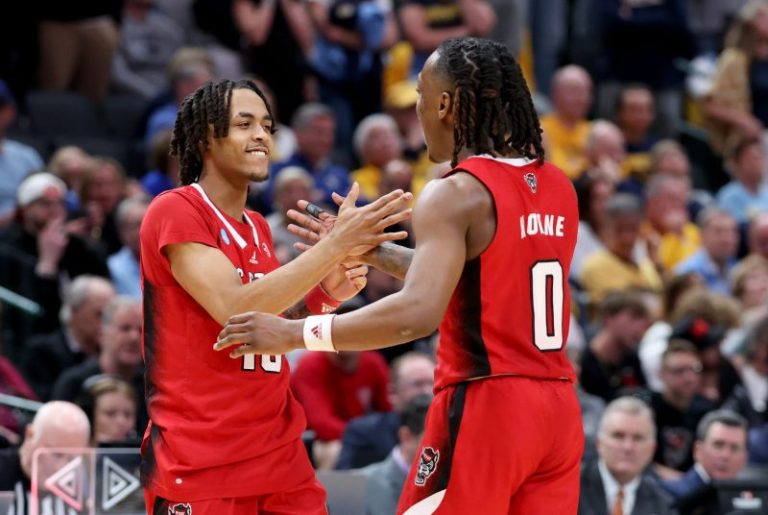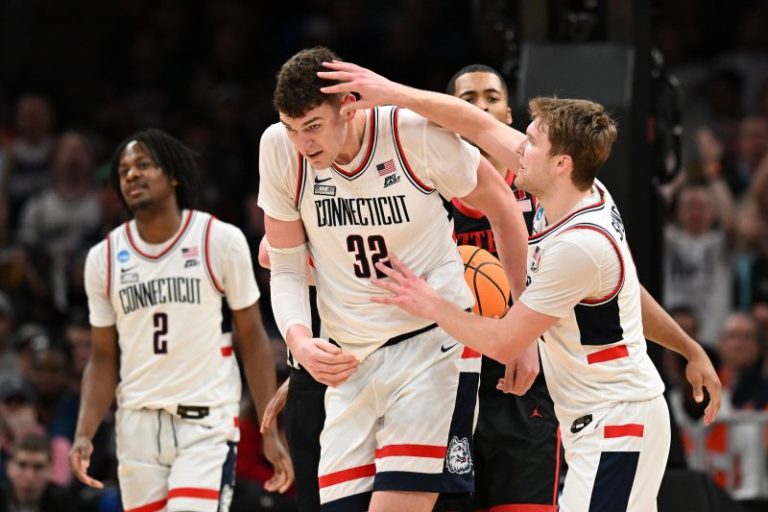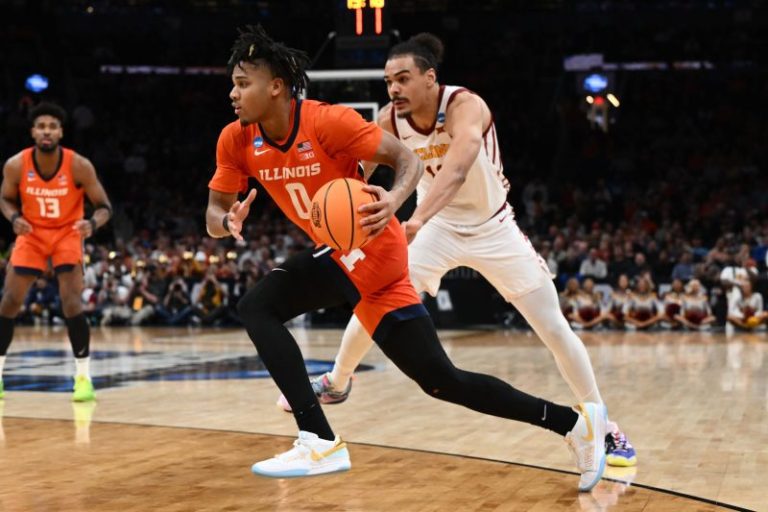DALLAS — Jim Phillips, the ACC commissioner, took the first flight out of Los Angeles on Friday morning but arrived here with a pep in his step that belied his lack of sleep.
In the political realm that seems to dominate so much of the conversation in college sports right now, these have not been great times for Phillips. His conference has been relegated to second-class status in recent College Football Playoff expansion negotiations, having been strong-armed by the SEC and Big Ten into accepting a lower share of revenue that used to be split equally among the Power Five.
Meanwhile, the ACC is being sued by Florida State and Clemson over language in the document that binds them to the league through 2036, suggesting their departure is only a matter of time and legalities.
And whether it was the CFP snubbing the Seminoles in December or Phillips’ league getting only five bids to the NCAA men’s basketball tournament, there has been an air of grievance — and fragility — around the entire operation.
But the ACC’s roots are here in this tournament, in this sport where it usually seems to transcend whatever ugliness is swirling around the conference. And on Friday night, as the ACC secured a third spot in the Elite Eight — two of them here in the South Regional — Phillips acknowledged that March has made so many of those big problems seem a little smaller.
FOLLOW THE MADNESS: NCAA basketball bracket, scores, schedules, teams and more.
“This is an amazing conference that has 71 years of history, that stands for the right things and has been about incredible success competitively, national championship caliber in all sports – football, basketball, Olympic sports with world class universities,” Phillips told USA TODAY Sports. “So some of the narrative to me gets completely distorted from the reality of what’s actually happening in our conference. There’s a tension to certain areas of it, and I understand that. But to me, that hasn’t kept us from continuing to perform.”
And performing they are — to an undeniable degree.
The ACC will have at least one Final Four team cutting down nets Sunday in American Airlines Center when No. 4 seed Duke and No. 11 seed North Carolina State face off for third time this month. And it will have a second participant if No. 6 seed Clemson can beat No. 4 seed Alabama Saturday in the West Regional.
These are teams, by the way, that finished second, tied for fifth and 10th place in the ACC regular-season standings. And if Clemson can reach the Final Four for the first time in program history, it will be the second time in three years the ACC has had multiple representatives on the final weekend.
Dysfunctional conference? Not in this tournament.
“I’m not surprised,” Duke coach Jon Scheyer said. “We’ve had battles against those guys the whole year.”
There are, of course, big picture realities that Phillips must reckon with that don’t have anything to do with the ACC’s postseason basketball performance.
The truth is that the ACC has been left behind from a revenue standpoint — even marginalized, to an extent — by a bad television contract that was signed prior to his arrival as commissioner. Fearing potential departures, the ACC was forced last fall to invite California, Stanford and SMU — schools that fit the league’s ethos academically but are disaster geographically and add little to its competitive fiber in football and men’s basketball.
If college sports continues its current march toward super-conferences and further merging of big brands, the ACC — through no fault of Phillips — may well end up as a major loser. That’s the reality, and everyone knows it.
But at the moment, it’s also beside the point. The ACC doesn’t just have a lot to celebrate this weekend, it has every right to pound its chest toward the critics who thought all season that the league had lost a step in its signature sport.
“We’re not the only team that took it with a level of disrespect,” NC State big man D.J. Burns said. “That’s why we’re all fighting now.”
Here’s the reality: Over the last 10 years, the ACC has only been shut out of the Final Four twice. In that span, three different programs have won national titles. It might have multiple Final Four teams for the third time this weekend. Since 2021, the league’s tournament record is 36-19 and counting.
It is a level of success that has left the ACC wondering why it only received five tournament bids this year, five last year and five the year before that.
‘If you look at a long history or a shorter sample size we want more access than what we’re receiving right now so we have to do something about that,” Phillips said. “To me, that is the No. 1 priority in the offseason. We can’t continue at that rate because our league is too good.”
What to do? Phillips has wondered if the league’s 20-game conference schedule has worked against the ACC. Before that, the league was regularly getting 7, 8 or 9 bids. But it’s also true that the ACC needs some of its traditional powers like Louisville or Syracuse to perform better.
There are no easy answers.
But beyond the hand-wringing and awkwardness, the league is doing something right. This tournament success, year after year, doesn’t seem like a fluke.
“(The ACC) 100 percent prepared us, even from a physicality standpoint,” NC State guard Casey Morsell said. ‘We were prepared just for a lot of different things teams throw at us whether it be super fast, super slow. That has kind of what has been a major key for us to adapt with different things the game presents.”
It’s hard to know what the future holds, so at least for now, Phillips is living in the moment. If you doubt that, just turn on the television Saturday and see him sitting behind the scorer’s table in Los Angeles wearing an orange-and-white striped tie — the colors of the school that is currently trying to litigate its way out of the league. And the non Sunday, he’ll fly back and wear a neutral green tie.
In the ACC right now, there are no favorites. The ugly politics will have to be sorted out eventually, but right now this is a conference with its back against the wall. Every win is cause for celebration.
In the ACC, it’s never mattered — or been needed — as much as it is right now.










